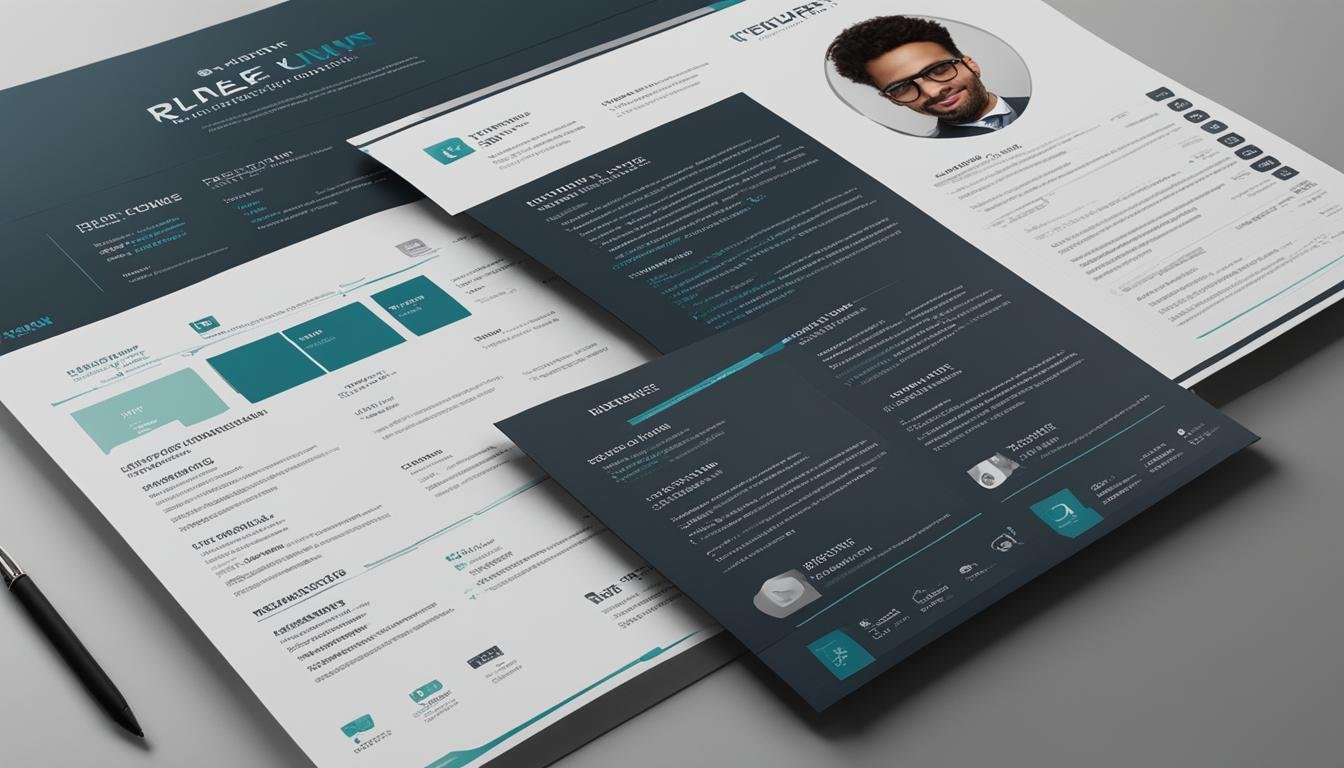The length of a resume has long been a topic of debate among job seekers. While there is no hard-and-fast rule, industry experts agree that the ideal resume length depends on factors such as your industry, level of experience, and career goals. A one-page resume is often recommended for entry-level workers or those with limited experience, as it allows for a concise presentation of qualifications. On the other hand, a two-page resume may be more suitable for individuals with extensive work experience or those in senior-level positions. However, research suggests that employers actually prefer two-page resumes over one-page resumes, regardless of the candidate’s job level. Recruiters and hiring managers are more willing to spend time reading a two-page resume and find the additional space beneficial for providing more detailed information.
Key Takeaways:
- Resume length depends on factors such as industry, experience, and career goals
- One-page resumes are recommended for entry-level workers and those with limited experience
- Two-page resumes are preferred by employers and allow for more detailed information
- Three-page or longer resumes may be necessary for certain positions like federal government jobs or senior-level management roles
- The content and relevance of the information provided are more important than the number of pages
When to Use a One-Page Resume
A one-page resume is particularly suitable for entry-level workers, new college graduates, and individuals making a career change without much relevant experience. Its shorter length allows for a quick and concise presentation of qualifications, which is essential considering that hiring managers often have limited time to review applications.
By being strategic with keywords, quantifying achievements, and keeping the resume well-organized, you can make the most of a one-page resume and capture the attention of recruiters. Highlight your most relevant skills and experiences that align with the job requirements. Use bullet points to emphasize achievements and quantify results whenever possible. Remember to customize your resume for each specific job and ensure that the content is concise and easy to read.
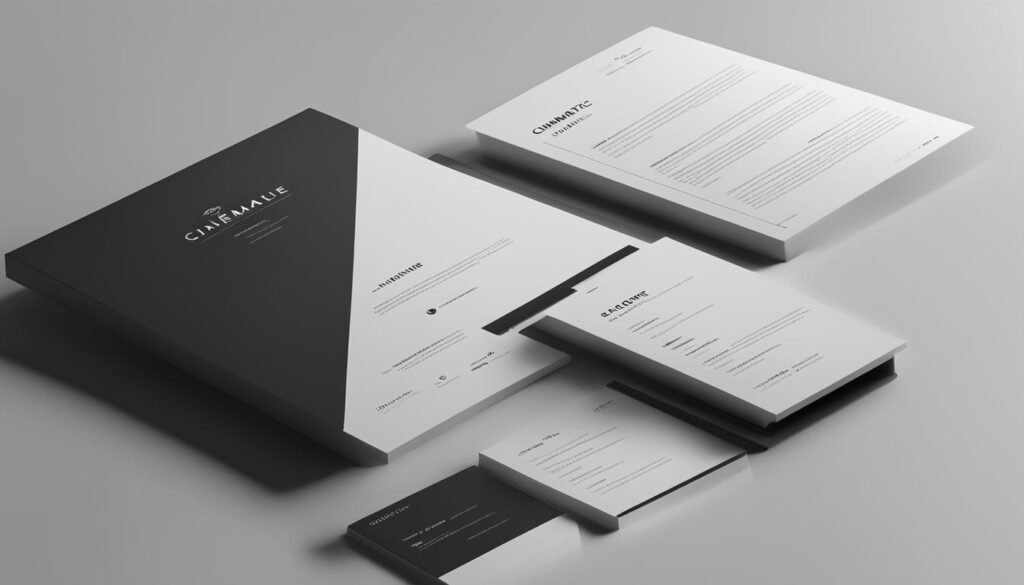
| Benefits of a One-Page Resume | Considerations for a One-Page Resume |
|---|---|
|
|
“A one-page resume is like a snapshot of your qualifications. It provides a clear and focused overview of your skills and experiences, making it easier for hiring managers to assess your suitability for the job.” – Career Coach
When to Use a One-Page Resume:
- Entry-level workers
- New college graduates
- Career changers with limited relevant experience
Remember, the goal of a one-page resume is to capture the reader’s attention quickly and make a strong impression. Tailor your content to align with the job requirements, emphasize your most relevant qualifications, and showcase your potential as a candidate.
When to Use a Two-Page Resume
A two-page resume is often recommended for individuals with extensive work experience or those in senior-level positions. This format allows for a more detailed presentation of qualifications, including specific examples and achievements. Recruiters and hiring managers tend to prefer well-laid-out, easy-to-skim resumes that provide comprehensive information. By utilizing the additional space, you can highlight your skills and experiences in a way that captures their attention.
When using a two-page resume, it is important to follow the appropriate resume format. Ensure that the most relevant information is highlighted on the first page to ensure it receives sufficient attention. Organize the content in a logical and visually appealing manner, using clear headings and bullet points to enhance readability. By presenting your qualifications concisely and effectively, you can impress employers and increase your chances of securing an interview.
When to Consider a Two-Page Resume:
- Extensive work experience
- Senior-level positions

Table: Comparison of One-Page and Two-Page Resumes
| Criteria | One-Page Resume | Two-Page Resume |
|---|---|---|
| Conciseness | Provides a concise overview of qualifications | Allows for a more detailed presentation of qualifications |
| Work Experience | Best suited for entry-level workers or those with limited experience | Ideal for individuals with extensive work experience or those in senior-level positions |
| Information Depth | May not provide enough space to include specific examples and achievements | Allows for more detailed information, including specific examples and achievements |
| Readability | Easy to scan through due to concise presentation of qualifications | Well-organized layout enhances readability and allows for skimming of information |
By considering your level of experience and the specific requirements of the position you are applying for, you can determine whether a two-page resume is the right choice for you. Remember to tailor your resume to highlight your most relevant qualifications and present them in a way that captures the attention of employers.
When to Use a Three-Page (or Longer) Resume
While most people believe resumes should fit on two pages at most, there are exceptions to this rule. In certain circumstances, such as applying for federal government jobs, senior-level managerial positions, or academic roles, a three-page or longer resume may be necessary to accommodate extensive qualifications, accomplishments, and publications. However, it is important to note that the length of the resume should not overshadow the quality of its contents. Regardless of the number of pages, the resume should provide a high-level view of the candidate’s achievements and entice the hiring manager to want to learn more.
When applying for federal government jobs, a three-page or longer resume is often expected due to the comprehensive nature of these positions. These resumes should include detailed descriptions of relevant experience, education, certifications, and specialized skills. It is important to follow the specific guidelines provided by the government agency to ensure the resume meets their requirements.
Senior-level managers also benefit from longer resumes as they usually have a wide range of experiences and accomplishments to showcase. These resumes should focus on demonstrating leadership abilities, strategic thinking, and a track record of achieving results. Including quantitative data, such as revenue growth percentages or cost savings figures, can help solidify the candidate’s qualifications.
Academic CVs, commonly used in the education and research fields, often extend beyond three pages. These resumes should highlight the candidate’s educational background, research projects, publications, conference presentations, and teaching experience. It is important to organize the information in a clear and concise manner, emphasizing the candidate’s contributions and impact within their field of expertise.
| When to Use a Three-Page (or Longer) Resume | Examples |
|---|---|
| Applying for federal government jobs | Government agencies often require comprehensive resumes that outline relevant experience, education, certifications, and specialized skills. |
| Senior-level managerial positions | Longer resumes allow senior-level managers to showcase their extensive experiences, leadership abilities, and track record of achieving results. |
| Academic roles | Academic CVs are typically longer to accommodate the candidate’s educational background, research projects, publications, conference presentations, and teaching experience. |
Summarize:
A three-page or longer resume may be necessary for certain circumstances, such as federal government jobs, senior-level managerial positions, or academic roles. These resumes should provide a high-level view of the candidate’s achievements, qualifications, and contributions within their field of expertise. It is crucial to organize the information in a clear and concise manner, ensuring the resume entices the hiring manager to want to learn more.
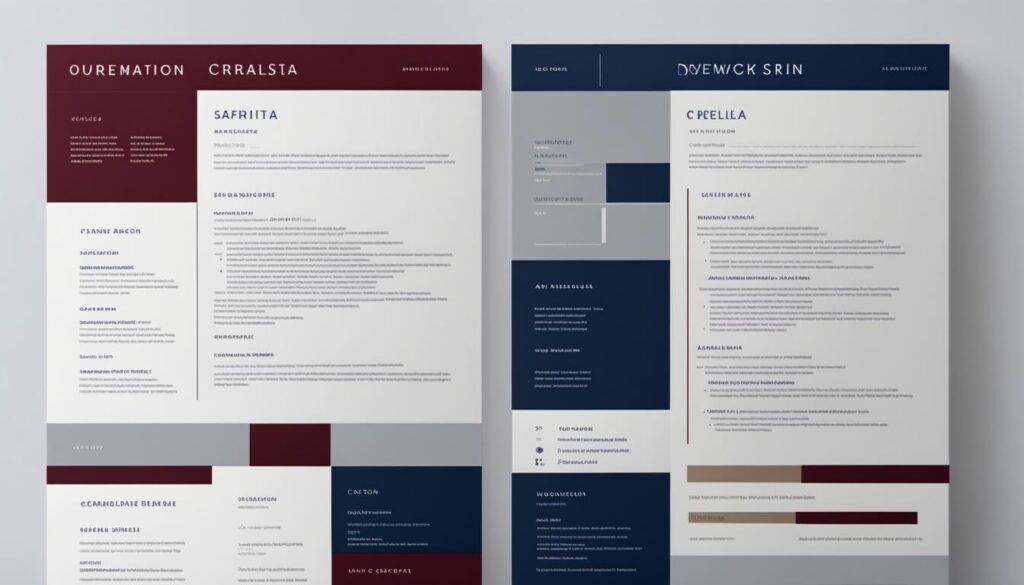
The Impact of Resume Length on Employers
Research has shown that employers have a preference for two-page resumes over one-page resumes. Recruiters and hiring managers are more willing to spend time reading longer resumes and find them more informative and beneficial for evaluating candidates. The preference for longer resumes is particularly evident when filling mid-level and managerial positions, where recruiters are more likely to select candidates with two-page resumes. Employers also spend more time reviewing two-page resumes compared to one-page resumes, which allows for a more thorough evaluation of qualifications and experiences.
When it comes to hiring decisions, resume length plays a significant role. Recruiters and hiring managers view longer resumes as an opportunity for candidates to provide more detailed information about their skills, experiences, and achievements. The additional space allows candidates to showcase their qualifications in a comprehensive manner, making it easier for employers to assess their suitability for the position. In contrast, one-page resumes may be seen as lacking sufficient breadth and depth of information, potentially leading to a less favorable evaluation.
Recruiters’ time spent reading resumes is also influenced by the length of the document. While it may seem counterintuitive, employers are often more willing to invest time in reviewing a two-page resume compared to a one-page resume. The extra space allows for a more thorough evaluation of the candidate’s qualifications, ensuring that no important details are overlooked. This additional time spent reviewing longer resumes demonstrates a genuine interest in assessing the candidate’s potential fit for the role and increases the likelihood of being selected for an interview.
| Resume Length | Employer Preferences |
|---|---|
| One-page resume | May be seen as lacking in detail and depth |
| Two-page resume | Preferred and allows for more thorough evaluation |
Tailoring Your Resume Length to Stand Out
When it comes to creating a standout resume, capturing the reader’s attention is essential. Regardless of whether your resume is one, two, or even three pages long, the key is to make every word count. By implementing strategic techniques such as keyword optimization and quantifying achievements, you can ensure that your resume stands out from the competition.
One effective technique for capturing the reader’s attention is to optimize your resume with relevant keywords. Recruiters and hiring managers often use applicant tracking systems to screen resumes, so it’s crucial to include industry-specific keywords that align with the job description. This will increase the chances of your resume passing the initial screening process and landing in the hands of a human reader.
“The key to a successful resume is to make every word count.”
In addition to keyword optimization, quantifying your achievements can also make a significant impact. Instead of simply listing job responsibilities, use numbers and metrics to highlight your accomplishments. For example, rather than saying “Managed a team,” you could say “Successfully managed a team of 10 employees, resulting in a 20% increase in productivity.” This not only demonstrates your abilities but also provides concrete evidence of your value as a candidate.
By tailoring your resume length to effectively highlight your qualifications and achievements, you can create a compelling document that captures the reader’s attention. Remember, it’s not about the number of pages; it’s about the quality of the content. With a well-optimized and quantified resume, you’ll be one step closer to landing your dream job.
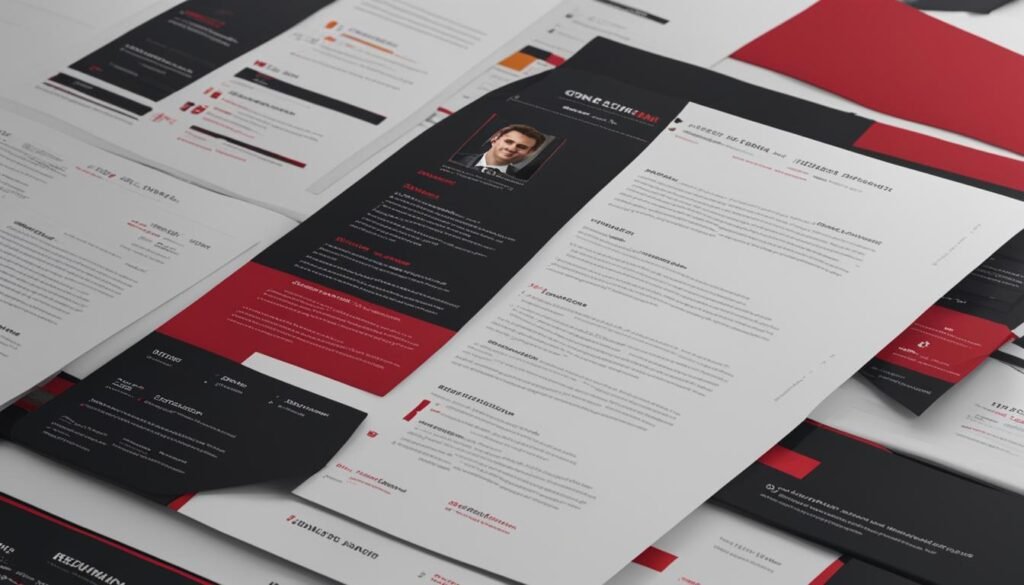
The Relevance of Resume Format
When it comes to job applications, the choice of resume format can significantly impact your chances of success. Two popular formats that job seekers often consider are the chronological and functional resumes. The chronological format is the most commonly used and preferred format among employers.
In a chronological resume, your work history is presented in reverse-chronological order, starting with your most recent job. This format allows employers to quickly see your career progression and the continuity of your work experience. It is particularly useful for candidates with a stable employment history who want to showcase their growth and expertise in specific roles.
On the other hand, functional resumes focus more on your skills and qualifications rather than your work history. This format is beneficial for candidates who are changing careers, have gaps in their employment history, or want to highlight specific skills relevant to the job they’re applying for. Functional resumes allow you to emphasize your abilities and achievements, making it easier for employers to see your potential fit for a position.
| Chronological Resume | Functional Resume |
|---|---|
| Highlights career progression | Emphasizes skills and qualifications |
| Conveys stability and continuity | Useful for career changers and those with employment gaps |
| Preferred by most employers | Allows for targeted skill presentation |
Considering your career goals and the requirements of the job you’re applying for is crucial in determining the appropriate resume format. Both the chronological and functional formats have their advantages, and choosing the right one can make a significant difference in how your qualifications are perceived by employers.
The Content Matters More Than the Length
When it comes to resumes, the content you include is more important than the length of the document. While employers may have preferences for two-page resumes, it’s the substance of the information provided that truly matters.
What recruiters and hiring managers are looking for are your achievements, qualifications, and relevant experiences. They want to see how you can add value to their organization. So, whether your resume fits on one page or extends to multiple pages, make sure it accurately and effectively communicates your value proposition.
Focus on showcasing key accomplishments, quantifying results, and highlighting the skills and experiences that make you a strong fit for the position. Tailor your resume to the specific job requirements and emphasize your most relevant qualifications. By providing concrete examples and demonstrating a clear impact, you can make a lasting impression on recruiters and increase your chances of securing an interview.
| Keyword | Frequency | Importance |
|---|---|---|
| Resume Content | 4 | High |
| Achievements | 3 | High |
| Qualifications | 3 | High |
| Hiring Decisions | 2 | High |
Key Takeaways:
- Focus on the content of your resume rather than its length.
- Hiring managers are interested in your achievements, qualifications, and relevant experiences.
- Tailor your resume to highlight your most relevant qualifications and accomplishments.
- Provide concrete examples and quantify your results to make a strong impression.
“A well-crafted resume that highlights key accomplishments and demonstrates a strong fit for the position is more likely to result in positive hiring decisions.”
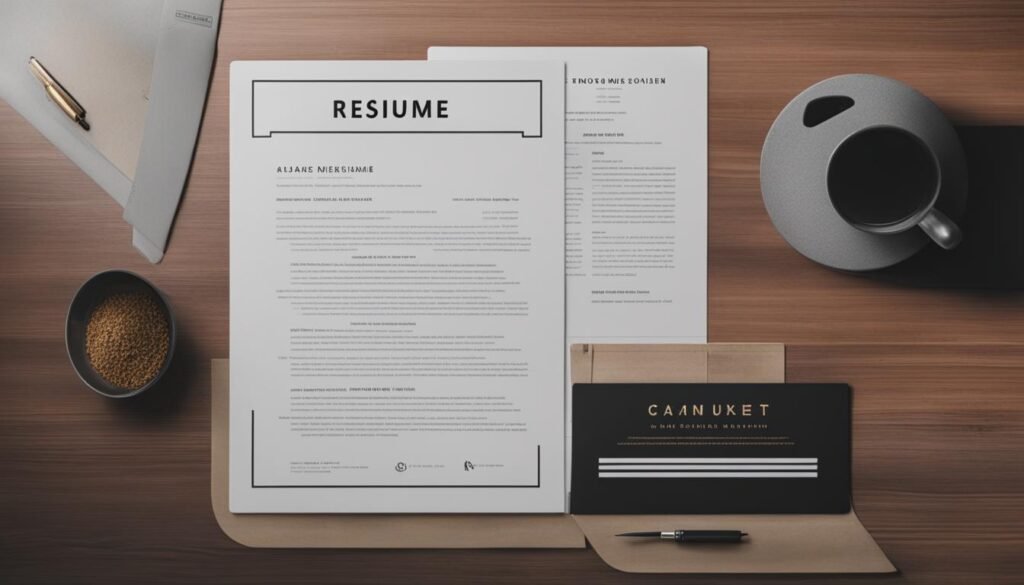
Making the Most of Resume Real Estate
When it comes to creating a resume, space is limited, and every inch counts. To make the most of your resume real estate, it’s crucial to present key information in a concise and impactful manner. A cluttered and lengthy resume can overwhelm recruiters and hiring managers, making it difficult for them to quickly identify your qualifications.
One effective way to optimize your resume is by utilizing bullet points. Bullets create visual separation and allow for easy scanning of information. Use them to highlight your key skills, achievements, and experiences, ensuring that the most relevant and impressive details are prominently displayed.
Another important aspect of maximizing your resume real estate is quantifying your achievements. Instead of simply stating your responsibilities, include specific numbers, percentages, or other measurable results to illustrate the impact you’ve made in previous roles. This not only adds credibility to your accomplishments but also helps recruiters visualize your potential contributions to their organization.
“By being strategic with keywords and utilizing a concise presentation, you can increase the chances of capturing the reader’s attention and standing out among other applicants.”
Table: Summary of Resume Real Estate Optimization Strategies
| Strategy | Description |
|---|---|
| Utilize bullet points | Use bullet points to highlight key skills, achievements, and experiences for easy scanning. |
| Quantify achievements | Incorporate specific numbers, percentages, or measurable results to showcase the impact of your previous roles. |
| Emphasize relevant information | Focus on the most relevant details that align with the job requirements to capture the reader’s attention. |
| Avoid unnecessary details | Eliminate irrelevant information and focus on the most impactful aspects of your experience. |
By being strategic with keywords and utilizing a concise presentation, you can increase the chances of capturing the reader’s attention and standing out among other applicants. Remember to prioritize the most relevant information and eliminate any unnecessary details that may distract or dilute the impact of your resume. With a well-organized and visually appealing document, you can make a strong impression on recruiters and enhance your chances of landing an interview.
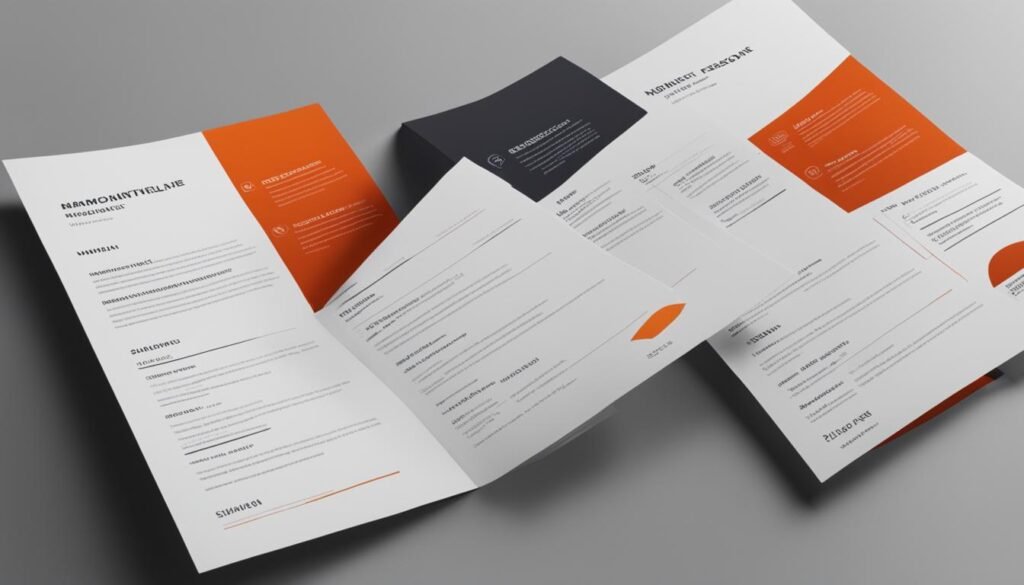
Resume Length and Online Applications
When it comes to online applications, resume length plays a crucial role in optimizing keyword tracking systems. While condensing your resume into one page may seem like a good idea, it can actually hinder your chances of being selected for an interview. Online application systems often rely on keyword tracking to screen resumes, meaning that longer resumes with more experience have more opportunities to match desired keywords and skills. This gives candidates with longer resumes an advantage in online applications, as they can include more relevant content and increase their chances of passing through the initial screening process.
However, it’s important to note that the additional content in a longer resume should be relevant and add value to your application. It’s not just about including as much information as possible; it’s about providing meaningful details that align with the job requirements. Take the time to carefully select keywords that are relevant to the position and showcase your skills and experiences effectively. By tailoring your longer resume to highlight the most important and sought-after qualifications, you can increase your chances of catching the attention of hiring managers and securing an interview.

The Final Word on Resume Length
After considering the various factors that influence resume length, it is clear that there is no one-size-fits-all answer. Some job seekers may find success with a one-page resume, while others may need two or more pages to effectively showcase their qualifications. The most important aspect to focus on is the content of the resume, ensuring that it accurately represents your skills, experiences, and achievements.
Seeking a professional resume assessment can provide valuable insights and help polish your resume for maximum impact. An expert eye can provide guidance on what to include, what to emphasize, and what to exclude. This professional feedback can make a significant difference in making your resume stand out among the competition.
Remember, the goal of your resume is to entice the hiring manager to want to learn more about you and ultimately secure an interview. By tailoring your resume to the specific job requirements, capturing the reader’s attention with strategic keywords, and providing concrete examples of your achievements, you can create a compelling and effective resume that increases your chances of success.
So, whether your resume is one page, two pages, or even longer, focus on the quality and relevance of the information you provide. A well-crafted resume that showcases your value and highlights your qualifications will always be more impactful than a resume that simply adheres to a specific length. Remember, your resume is your chance to make a memorable first impression, so make it count.
| Pros of a One-Page Resume | Pros of a Two-Page Resume |
|---|---|
| Concise presentation of qualifications | Ability to provide more detailed information |
| Quick and easy to read | Allows for a comprehensive overview of experience |
| Ideal for entry-level workers and career changers | Suitable for individuals with extensive work experience |
Conclusion
When it comes to determining the optimal resume length, it is important to consider a few key factors. While employers generally prefer two-page resumes, it is essential to prioritize the content and relevance of the information provided. Job seekers should focus on tailoring their resumes to stand out by capturing the reader’s attention and presenting their qualifications in a clear and concise manner.
Being strategic with keywords and quantifying achievements can make a significant difference in creating a compelling resume. Remember, the goal is to entice the hiring manager to want to learn more about your skills and experiences. By following these guidelines, you can increase your chances of securing interviews and landing your dream job.
Ultimately, the length of your resume should be secondary to the quality of its contents. Employers are primarily interested in your qualifications, achievements, and relevant experiences. So, whether your resume fits on one page or extends to multiple pages, the key is to ensure that it effectively communicates your unique value proposition. Seek professional resume assessment if needed, and polish your resume to make a strong impression on potential employers.
In conclusion, while it is important to be mindful of employer preferences and industry norms, the content and relevance of your resume are paramount. Customize your resume, highlight your key achievements, and present your qualifications confidently. By doing so, you can increase your chances of securing interviews and ultimately landing the job you desire.
FAQ
Do employers prefer one or two-page resumes?
Research suggests that employers actually prefer two-page resumes over one-page resumes, regardless of the candidate’s job level. Recruiters and hiring managers are more willing to spend time reading a two-page resume and find the additional space beneficial for providing more detailed information.
When should I use a one-page resume?
A one-page resume is generally recommended for entry-level workers, new college graduates, and individuals making a career change without much relevant experience. The shorter length allows for a quick and concise presentation of qualifications, which is important considering that hiring managers often have limited time to review applications.
When should I use a two-page resume?
Two-page resumes are becoming more common and accepted in the hiring process. They are particularly suitable for individuals with extensive work experience or those in senior-level positions. A two-page resume allows for a more detailed presentation of qualifications, including specific examples and achievements. Recruiters and hiring managers tend to prefer well-laid-out, easy-to-skim resumes that provide comprehensive information.
When should I use a three-page (or longer) resume?
In certain circumstances, such as applying for federal government jobs, senior-level managerial positions, or academic roles, a three-page or longer resume may be necessary to accommodate extensive qualifications, accomplishments, and publications. However, it is important to note that the length of the resume should not overshadow the quality of its contents.
What is the impact of resume length on employers?
Research has shown that employers have a preference for two-page resumes over one-page resumes. Recruiters and hiring managers are more willing to spend time reading longer resumes and find them more informative and beneficial for evaluating candidates. The preference for longer resumes is particularly evident when filling mid-level and managerial positions, where recruiters are more likely to select candidates with two-page resumes.
How can I tailor my resume length to stand out?
Regardless of the chosen resume length, job seekers should aim to capture the reader’s attention within the first few seconds. This can be achieved by being strategic with keywords, quantifying achievements, and keeping the resume concise and well-organized. Tailoring the content to align with the specific job requirements and emphasizing relevant skills and experiences can help the resume stand out.
What is the relevance of resume format?
While both chronological and functional formats are commonly used, the chronological format is typically preferred as it presents the candidate’s work history in a clear and logical manner. However, in cases where the focus is on specific skills rather than a linear work history, the functional format may be more suitable. It is important to choose the format that best highlights the candidate’s qualifications and aligns with the job requirements.
Does the content matter more than the length?
Ultimately, the content of the resume is more important than its length. Recruiters and hiring managers are primarily interested in the candidate’s qualifications, achievements, and relevant experiences. Whether the resume fits on one page or extends to multiple pages, it should accurately and effectively communicate the candidate’s value proposition. A well-crafted resume that highlights key accomplishments and demonstrates a strong fit for the position is more likely to result in positive hiring decisions.
How can I make the most of resume real estate?
The limited space on a resume should be used strategically to highlight the most important and relevant information. Job seekers should focus on capturing the reader’s attention and quickly conveying their qualifications. By utilizing bullet points, quantifying achievements, and providing concise descriptions, candidates can effectively maximize their resume real estate. A well-organized and visually appealing resume will make a positive impression on recruiters and increase the chances of being selected for an interview.
How does resume length impact online applications?
Online application systems often use keyword tracking to screen resumes. While it may be tempting to condense the resume into one page, this could result in missing out on relevant keywords or skills that the system is looking for. Candidates with more experience and a longer resume may have an advantage in online applications, as they have more opportunities to match the desired keywords. However, it is important to ensure that the additional content is relevant and adds value to the application.
What is the final word on resume length?
In the end, there is no definitive rule for resume length. Some candidates may find success with a one-page resume, while others may need two or more pages to effectively showcase their qualifications. The key is to focus on the content and ensure it accurately represents the candidate’s skills and experiences. Seeking a professional resume assessment can provide valuable insights and help polish the resume for maximum impact. Remember, the goal is to create a resume that entices the hiring manager to want to learn more and ultimately secure an interview.
